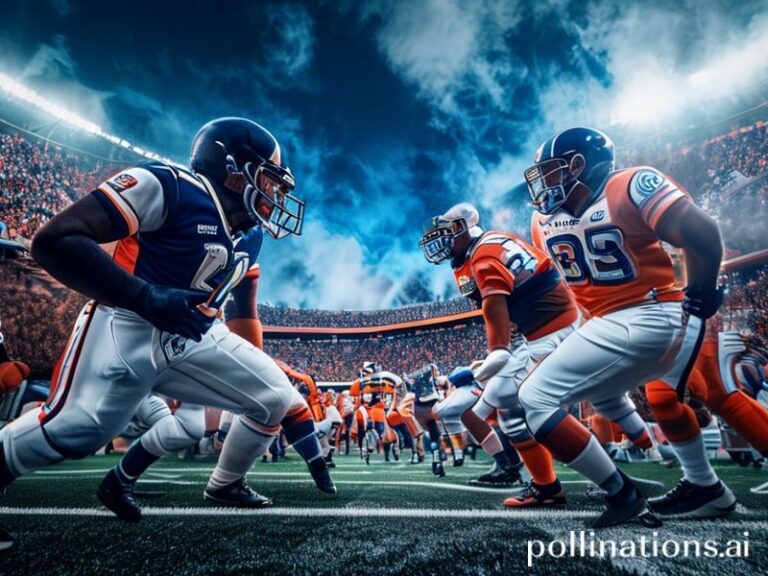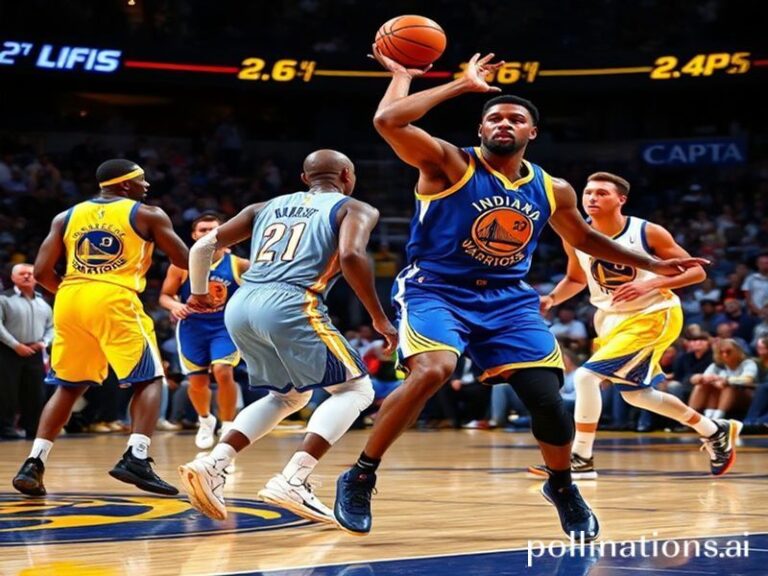Devon Witherspoon: How a NFL Cornerback Became the World’s Most Expensive Distraction from Civilizational Collapse
**The Devon Witherspoon Doctrine: How a Cornerback from Florida Became an Unlikely Metaphor for Global Power Shifts**
In the grand theater of international relations, where nuclear powers play chicken over shipping lanes and cryptocurrency barons purchase democracy like souvenir snow globes, it takes a peculiar sort of genius to find geopolitical significance in a 22-year-old who excels at preventing grown men from catching an oblong leather balloon. Yet here we are, witnessing Devon Witherspoon’s coronation as the NFL’s Defensive Rookie of the Year—a development that, depending on your perspective, either represents humanity’s triumphant spirit or confirms we’ve collectively lost the plot.
The international implications are, admittedly, not immediately obvious. Witherspoon hails from Pineville, Louisiana—population 14,000, or roughly the number of people who claim to understand cryptocurrency but definitely don’t. His journey from a town where the most exciting export is existential dread to becoming a millionaire athlete follows a narrative arc that would make Joseph Campbell blush: local hero overcomes poverty through athletic prowess, achieves American Dream, purchases mother a house. It’s a tale so quintessentially American that other nations watch with the same morbid fascination usually reserved for reality TV shows about people who hoard expired mayonnaise.
But consider the broader canvas. While Witherspoon was perfecting the art of violent interception, the world was busy demonstrating its own defensive capabilities: Russia perfecting the art of violent intervention, China perfecting the art of violent suppression of historical memory, and Britain perfecting the art of violently shooting itself in the foot. Perhaps there’s something almost poetic about a young Black man from the American South achieving excellence through strategic positioning and reading opponents—a skill set that, if exported to the diplomatic corps, might prevent the next international incident over a balloon.
The global economy, that magnificent beast that supposedly connects us all while simultaneously making us more precarious, has created a peculiar ecosystem where Witherspoon’s four-year, $31.86 million contract represents both obscene excess and rational market behavior. To put this in perspective: that’s roughly the GDP of Tuvalu, give or take a few atolls. While Pacific island nations negotiate their literal survival against rising seas, we’re debating whether a cornerback deserves $8 million annually for 17 games of organized violence. The invisible hand of the market, it seems, has developed arthritis.
What makes Witherspoon particularly fascinating to the international observer is how perfectly he embodies America’s peculiar talent for transformation—turning human beings into brands, athletic ability into cryptocurrency, and entertainment into the opiate that keeps the masses from noticing the whole system is held together by algorithmic duct tape and the prayer that nobody looks too closely at the national debt. He’s not just playing football; he’s performing the greatest magic trick of the 21st century: making people forget that civilization is basically a shared hallucination we’re all too tired to question.
The cynical observer—and really, at this point, who isn’t?—might note that Witherspoon’s success story serves as a convenient distraction from the machinery of extraction that produces such tales. For every Devon Witherspoon who escapes the gravitational pull of systemic poverty, thousands remain in orbit, their own potential sacrificed to maintain the narrative that anyone can make it if they just want it badly enough. It’s the American version of the Buddhist wheel of suffering, except instead of enlightenment, the prize is a Nike endorsement.
Yet there’s something almost admirable about the sheer audacity of it all. In a world where meaning has become as negotiable as a cryptocurrency’s value, where truth is determined by engagement metrics rather than correspondence to reality, Witherspoon represents something refreshingly concrete: actual physical excellence in an increasingly virtual existence. He runs fast, jumps high, hits hard—primitive virtues that somehow feel revolutionary in an age when most of us navigate reality through screens that make us forget we have bodies at all.
Perhaps that’s the real international significance: Devon Witherspoon reminds us that despite our sophisticated delusions, we’re still just upright apes who get genuinely excited about watching other apes perform extraordinary physical feats. The rest is commentary—and increasingly expensive commentary at that.







